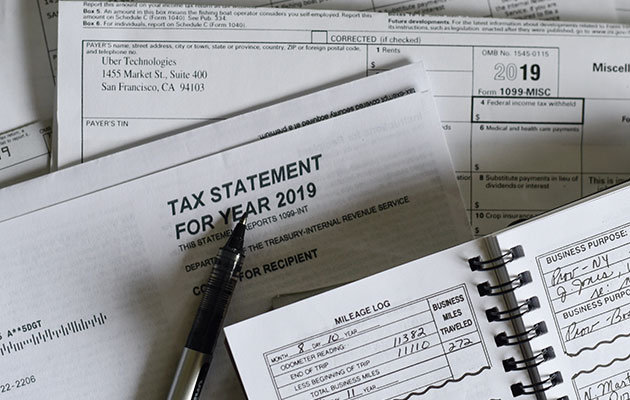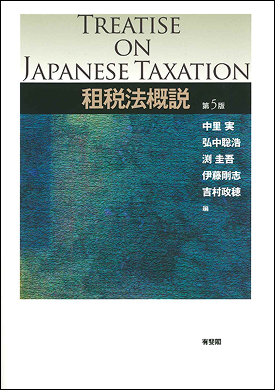The Revenue Department has adjusted the criteria for tax collection when income derives from sources outside Thailand, effective as of 1 January 2024 (Part 1)
An ordinary person shall be subject to taxation under the Thai Revenue Code when there is income generated and will have to include such income in tax calculation at the end of each year. Thai taxation levies are based on two fundamental criteria: i) the Source of Income Rule; and ii) the Resident Rule. This implies that the tax liability depends on whether the income derives from within Thailand or outside the territory of Thailand.
1. Source of Income Rule: Income derived from sources within Thailand.
Income arising from domestic sources refers to income that arises directly or indirectly from work performed in Thailand, business conducted in Thailand, an employer's business in Thailand or having property in Thailand (interest, dividends, rent, etc.). An ordinary person who has income from sources in Thailand has an obligation to pay income tax unless specifically exempted by law. This applies irrespective of whether the aforementioned income is received domestically or internationally, because the consideration is based on the source of the income and not the transfer or payment of such income, as per the following examples:
・Mr. A operates a business selling products in Thailand but receives money transferred from abroad;
・Mr. B is employed by Company B in Thailand but is assigned to work overseas for Company B and receives income from Company B transferred to his overseas bank account; and
・Mr. C sells property in Thailand but receives money transferred from abroad.
These examples all represent sources of income in Thailand, regardless of whether or not the income recipient is of Thai nationality. For instance, Mr. A (other nationalities) is an employee of Company B in Thailand, which is considered to be a source of income due to the employer's business being located in Thailand, regardless of whether or not Mr. A resides in Thailand or enters Thailand.
2. Resident Rule: Income derived from sources outside Thailand
Income arising from sources outside Thailand refers to income that arises directly or indirectly from work performed abroad, business conducted abroad or from having assets located outside Thailand. However, anybody who has income arising from sources outside Thailand in the previous tax year shall be liable to pay income tax in Thailand only if both of the following conditions are met:
2.1) The person is a resident of Thailand, having stayed in Thailand for one or more periods totalling at least 180 days in that tax year (Thai Tax Calendar Year from 1 Jan - 31 Dec); and
2.2) The person brings such income received from abroad into Thailand in the same tax year. If such income is brought into Thailand in different tax years, there will be no tax liability. However, this rule has been amended and new rules will be enforced commencing as of 1 January 2024.
Additionally, the aforementioned criteria may have exemptions based on tax treaties that Thailand has entered into with foreign countries.
The new criteria for collecting Personal Income Tax (“PIT”) from sources outside Thailand are as follows:
In the case of an ordinary person having income from sources outside Thailand brought into Thailand as of 1 January 2024, the Revenue Department Order No. Por.161/2023 dated 15 September 2023, regarding the taxation of income according to Section 41, paragraph two of the Thai Revenue Code, stipulates that persons with income originating from sources outside Thailand in the previous tax year shall be liable to pay income tax in Thailand only if both of the following conditions are met:
2.1) The person is a resident of Thailand, having stayed in Thailand for one or more periods totalling at least 180 days in that tax year (Thai Tax Calendar Year from 1 Jan - 31 Dec); and
2.2) The person brings such income from that foreign country into Thailand, regardless of whether or not the income is brought in the same tax year as the year in which such income was earned.
Nevertheless, if the income has already been taxed in the country of origin of the income, the income earners can use the tax that was collected from the source country which has a double tax agreement with Thailand as a tax credit, but not exceeding the tax that must be paid in Thailand.
Thailand has become a member of the Global Forum on Transparency and Exchange of Information for Tax Purposes, necessitating the signing of the Multilateral Agreement on Mutual Administrative Assistance in Tax Matters (“MAC”) and the Multilateral Competent Authority Agreement on Automatic Exchange of Financial Account Information (“MCAA CRS”). Therefore, the Revenue Department is required to enhance tax collection to ensure greater fairness between individual persons with income derived from both domestic and foreign sources. The previous criteria concerning proof of income and the timeframes for bringing income into Thailand have limited the tax collection for those who have sources of income derived from foreign sources. Consequently, the Revenue Department has established new criteria by modifying the methods for collecting PIT from individual persons.
Consequently, those who have income derived from sources outside Thailand and who bring their income into Thailand will have a burden to pay taxes in Thailand, provided they meet the new criteria for residence in Thailand as outlined in both aforementioned conditions.
However, there are other specific considerations regarding the tax agreements of each country that need further examination as to whether or not there are income exemption provisions in each case.
This is intended merely to provide a regulatory overview and not to be comprehensive, nor to provide legal advice. Should you have any questions on this or on other areas of taxation law, please do not hesitate to contact our tax team.
Budhima Kerdsiri
Counsel
Hatairat Sukprasert
Associate
Pairaya Yangpaksi
Associate
Reference: Revenue Department, press release No. PorChorSor. 34/2023







Budhima provides advice on tax compliance and a wide variety of tax-related work. In particular, she has extensive experience with accounting transactions and tax planning. Further, she has handled tax counseling and tax controversies and has substantial experience representing and advising individuals and major corporations in tax disputes, including filing appeal letters for tax assessments, which were assessed by the Revenue Department, the Customs Department, the Excise Department, and local tax collection agencies such as those dealing with land and building tax. In addition, she has more than 10 years of experience as a public speaker and columnist for tax magazines, focusing on tax planning and tax compliance for individuals and companies seeking to maximize their tax privileges under Board of Investment (BOI) promotion and accounting adjustments to comply with Thai tax laws.
Budhima was a columnist for the Tax Documentation Journal, the No. 1 public journal related to accounting and taxation published by Dharmniti Press Co., Ltd., and she is also the author of “Differences and similarities between accounting profit and taxable profit,” a book that has been published twice.